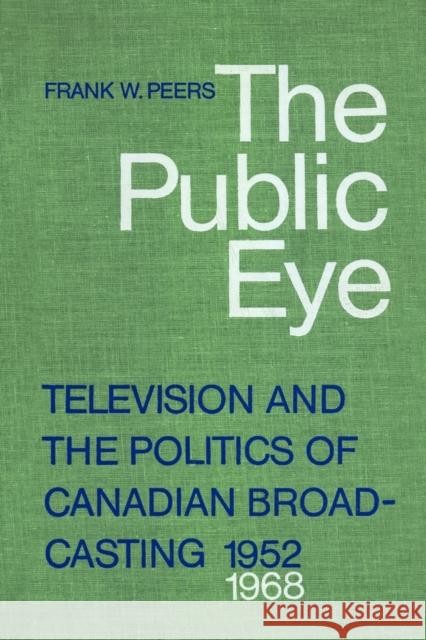The Public Eye: Television and the Politics of Canadian Broadcasting, 1952-1968 » książka
The Public Eye: Television and the Politics of Canadian Broadcasting, 1952-1968
ISBN-13: 9781442613164 / Angielski / Miękka / 1979 / 476 str.
This book traces the development of the broadcasting system in Canada from the inception of television in 1952 to the passing of the Broadcast Act of 1968, focusing on the policy decisions made by governments and broadcasting authorities and the circumstances under which they were made. Several public investigations of the system and its performance took place during television's first sixteen years in Canada and their aims and outcomes form an important part of the story. The book deals with the relationships between the CBC, the private broadcasters, government, and the regulatory authority, and also with events that affected the perceptions of politicians and the public - the French network strike in 1959, the Preview Commentary affair of the same year, and the controversies surrounding the CBC program 'This Hour Has Seven Days' in 1965-6. Among those who figure prominently are A. Davidson Dunton and Alphonse Ouimet of the CBC; T.J. Allard and Don Jamieson of the Canadian Association of Broadcasters; Robert Fowler, chairman of two public inquiries into broadcasting; Andrew Stewart, chairman of the Board of Broadcast Governors; and Graham Spry, organizer of the Canadian Broadcasting League. The government officials involved include Prime Ministers Louis St Laurent, John Diefenbaker, and Lester B. Pearson, and ministers J.J. McCann, Goerge Nowlan, Jack Pickersgill, Maurice Lamontagne, and Judy LaMarsh. Frank Peers has unearthed a remarkable quantity of new material - from government documents, CBC records, interviews with key figures, and the records and manuscripts of a number of principals - and woven it into a fascinating and authoritative account of the state's involvement in broadcasting during these troubled and changeful years.











